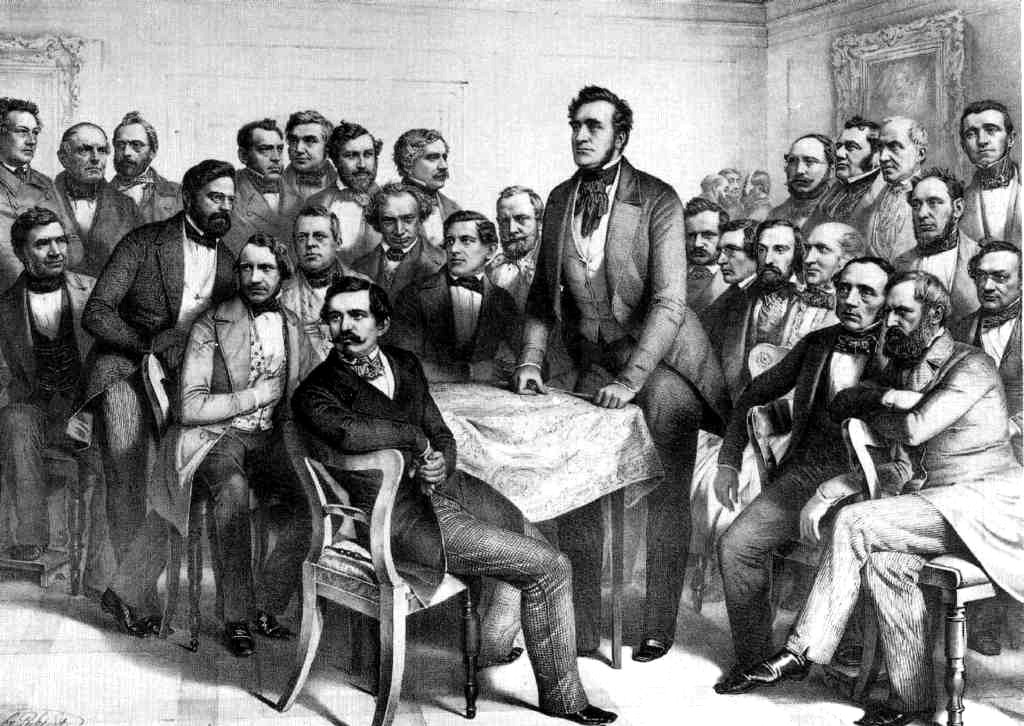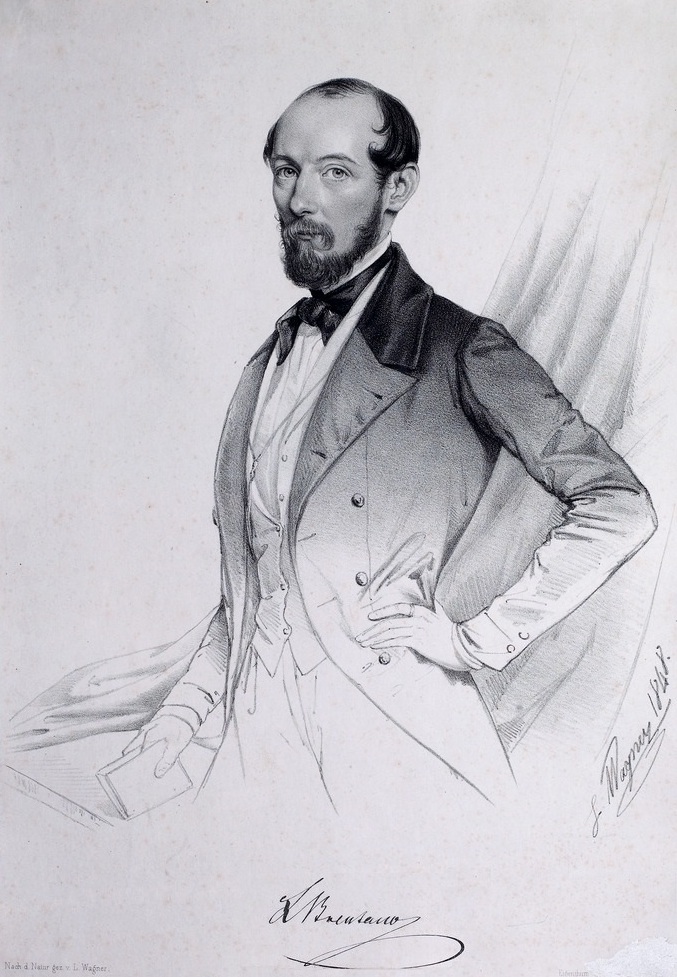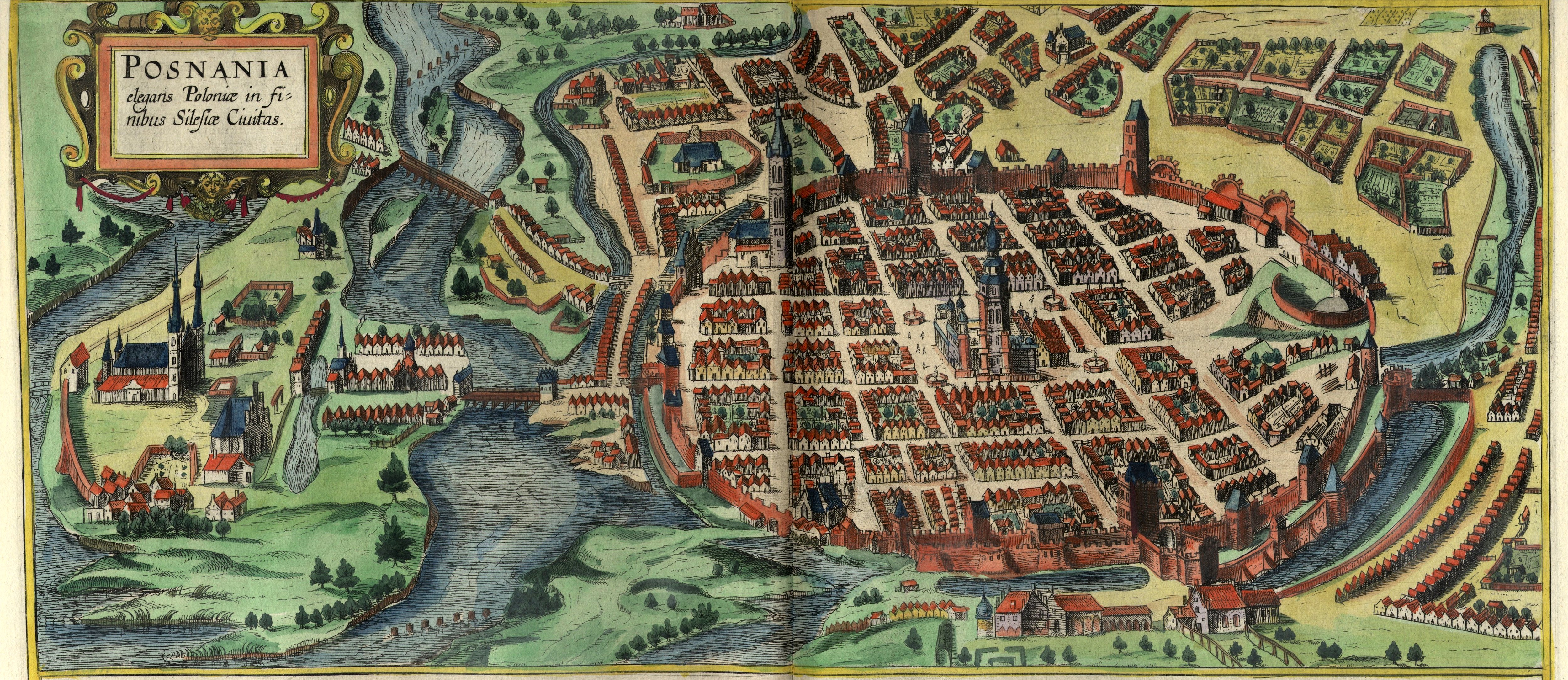|
Factions In The Frankfurt Assembly
The factions in the Frankfurt Assembly were groups () that developed among delegates to the Frankfurt Parliament that met from 18 May 1848 to 31 May 1849 in the Paulskirche, Frankfurt, Paulskirche in Frankfurt am Main. They coalesced as groups of like-minded representatives started meeting, and were named after the various hostelries at which they met.Martin Kitchen''A History of Modern Germany: 1800 to the Present'' 2nd ed. Chichester, West Sussex/Malden, Massachusetts: Wiley-Blackwell, 2012, . The largest factions were Casino faction, Casino, Württemberger Hof and the United Left-wing politics, left which was also known as the Märzverein (March association). The United Left The Left-wing politics, Left was at the time also called the "Wholes",Jörg-Detlef Kühne, ''Die Reichsverfassung der Paulskirche: Vorbild und Verwirklichung im späteren deutschen Rechtsleben'', Frankfurt: Metzner, 1985, p. 35 and consisted of a coalition of extreme and moderate republicans. Centralmärzv ... [...More Info...] [...Related Items...] OR: [Wikipedia] [Google] [Baidu] |
Paulskirche Casinofraktion
St Paul's Church () in Frankfurt, Frankfurt am Main is a former church building used as an exhibition, memorial and meeting place. It was built between 1789 and 1833 to replace the medieval "Barfüßerkirche", which was demolished in 1786, and served as Frankfurt's main Protestantism, Protestant-Lutheran church until 1944, when it was replaced by St Catherine's Church. From 1848 to 1849, the delegates of the Frankfurt Parliament, Frankfurt National Assembly, the first parliament for the whole of Germany, met in the neoclassical circular building designed by architect Johann Friedrich Christian Hess. Alongside Hambach Castle, St Paul's Church is thus regarded as a symbol of the democratic movement in Germany and a national symbol. However, almost nothing remains of the interior from this most important era for St Paul's Church and the history of German democracy. History The Free City of Frankfurt, then governing its legally non-separated Lutheran state church, commissioned to ... [...More Info...] [...Related Items...] OR: [Wikipedia] [Google] [Baidu] |
Carl Vogt
August Christoph Carl Vogt (; ; 5 July 1817 – 5 May 1895) was a German scientist, philosopher, popularizer of science, and politician who emigrated to Switzerland. Vogt published a number of notable works on zoology, geology and physiology. All his life he was engaged in politics, in the German Frankfurt Parliament of Revolutions of 1848, 1848–49 and later in Switzerland. Early life Vogt was born in Giessen, the son of , professor of clinics, and Louise Follenius. His maternal uncle was Charles Follen. From 1833 to 1836, he studied medicine at the University of Giessen, and continued his training in Bern, Switzerland, earning his PhD. in 1839. He then worked with Louis Agassiz in Neuchâtel. Life and Career In 1847 he became professor of zoology at the University of Giessen, and in 1852 professor of geology and afterwards also of zoology at the University of Geneva. His earlier publications were on zoology. He dealt with the Amphibia (1839), Reptiles (1840), with Mollusca ... [...More Info...] [...Related Items...] OR: [Wikipedia] [Google] [Baidu] |
Franz Joseph Damian Junghanns
Franz Joseph Damian Junghanns (29 November 1800, in Stocksberg castle – 3 December 1875, in Baden-Baden) was a Jurist and leader in the Baden Revolution of 1848. Junghanns studied from 1819 to 1823 at the University of Heidelberg and University of Göttingen. In 1846, he was elected to the 12th season of the Second Chamber of Baden state parliament. He wasn't reelected in the 13th season, but took the place of his elected brother in 1847 and served until 1848. In May 1849 he took part in the Offenburg Assembly and the Baden uprising. He was part of the provisional national committee during this time. Junghanns also served in the provisional German parliament at this point. After the revolution collapsed Junghanns took refuge in Elsass, Belgium, and Switzerland, while in 1850 he was sentenced in absence to nine years in prison. He returned to Baden in 1859. After this he practiced law at Bühl and Rastatt Rastatt () is a town with a Baroque core, District of Rastatt, ... [...More Info...] [...Related Items...] OR: [Wikipedia] [Google] [Baidu] |
Carl Damm (politician, Born 1812)
Carl Damm (February 20, 1927 – December 8, 1993) was a German politician of the Christian Democratic Union (CDU) and former member of the German Bundestag The Bundestag (, "Federal Diet (assembly), Diet") is the lower house of the Germany, German Federalism in Germany, federal parliament. It is the only constitutional body of the federation directly elected by the German people. The Bundestag wa .... Life Damm joined the CDU after 1945 and was deputy state chairman of the Hamburg CDU from 1968 to 1974. From 1953 to 1966 Damm was a member of the Hamburg State Parliament and was a member of the Hamburg-Block Parliamentary Group in the third legislative period (1953-1957). In the 1965 federal elections he was elected to the German Bundestag, of which he was a member until 1980. He had always entered parliament via the Hamburg state list. Literature References 1927 births 1993 deaths Members of the Bundestag for Hamburg Members of the Bundestag 1976–1 ... [...More Info...] [...Related Items...] OR: [Wikipedia] [Google] [Baidu] |
Lorenz Brentano
Lorenzo Brentano (November 4, 1813 – September 18, 1891) was a German revolutionary and journalist who served as President of the Free State of Baden during the 1849 Baden Revolution. Following the failure of the revolutions, he and many other intellectuals and leaders fled to the United States, where he became editor of the Illinois Staats-Zeitung and eventually served as a member of the United States House of Representatives from Illinois. Biography Born as Lorenz Peter Carl Brentano in Mannheim, Grand Duchy of Baden, Germany, Brentano received a thorough classical training and studied jurisprudence at the Universities of Heidelberg and Freiburg. He practiced before the supreme court of Baden. Brentano was elected to the Chamber of Deputies and in 1848 to the Frankfurt Parliament. He served as president of the provisional republic of Baden established by the revolutionists in 1849. He was sentenced to imprisonment for life after the failure of the revolution, but sou ... [...More Info...] [...Related Items...] OR: [Wikipedia] [Google] [Baidu] |
Nationalism
Nationalism is an idea or movement that holds that the nation should be congruent with the state. As a movement, it presupposes the existence and tends to promote the interests of a particular nation, Smith, Anthony. ''Nationalism: Theory, Ideology, History''. Polity, 2010. pp. 9, 25–30; especially with the aim of gaining and maintaining its sovereignty ( self-governance) over its perceived homeland to create a nation-state. It holds that each nation should govern itself, free from outside interference (self-determination), that a nation is a natural and ideal basis for a polity, and that the nation is the only rightful source of political power. It further aims to build and maintain a single national identity, based on a combination of shared social characteristics such as culture, ethnicity, geographic location, language, politics (or the government), religion, traditions and belief in a shared singular history, and to promote national unity or solidarity. There are ... [...More Info...] [...Related Items...] OR: [Wikipedia] [Google] [Baidu] |
Moravia
Moravia ( ; ) is a historical region in the eastern Czech Republic, roughly encompassing its territory within the Danube River's drainage basin. It is one of three historical Czech lands, with Bohemia and Czech Silesia. The medieval and early modern Margraviate of Moravia was a crown land of the Lands of the Bohemian Crown from 1348 to 1918, an imperial state of the Holy Roman Empire from 1004 to 1806, a crown land of the Austrian Empire from 1804 to 1867, and a part of Austria-Hungary from 1867 to 1918. Moravia was one of the five lands of First Czechoslovak Republic, Czechoslovakia founded in 1918. In 1928 it was merged with Czech Silesia, and then dissolved in 1948 during the abolition of the land system following the 1948 Czechoslovak coup d'état, communist coup d'état. Its area of 22,623.41 km2 is home to about 3.0 million of the Czech Republic's 10.9 million inhabitants. The people are historically named Moravians, a subgroup of Czechs, the other group being calle ... [...More Info...] [...Related Items...] OR: [Wikipedia] [Google] [Baidu] |
Bohemia
Bohemia ( ; ; ) is the westernmost and largest historical region of the Czech Republic. In a narrow, geographic sense, it roughly encompasses the territories of present-day Czechia that fall within the Elbe River's drainage basin, but historically it could also refer to a wider area consisting of the Lands of the Bohemian Crown ruled by the List of Bohemian monarchs, Bohemian kings, including Moravia and Czech Silesia, in which case the smaller region is referred to as Bohemia Proper as a means of distinction. Bohemia became a part of Great Moravia, and then an independent principality, which became a Kingdom of Bohemia, kingdom in the Holy Roman Empire. This subsequently became a part of the Habsburg monarchy and the Austrian Empire. After World War I and the establishment of an History of Czechoslovakia (1918–1938), independent Czechoslovak state, the whole of Bohemia became a part of Czechoslovakia, defying claims of the German-speaking inhabitants that regions with German ... [...More Info...] [...Related Items...] OR: [Wikipedia] [Google] [Baidu] |
Poznań
Poznań ( ) is a city on the Warta, River Warta in west Poland, within the Greater Poland region. The city is an important cultural and business center and one of Poland's most populous regions with many regional customs such as Saint John's Fair, Poznań, Saint John's Fair (''Jarmark Świętojański''), traditional St. Martin's croissant, Saint Martin's croissants and a local dialect. Among its most important heritage sites are the Renaissance in Poland, Renaissance Old Town, Poznań Town Hall, Town Hall and Poznań Cathedral. Poznań is the fifth-largest List of cities and towns in Poland#Cities, city in Poland. As of 2023, the city's population is 540,146, while the Poznań metropolitan area (''Metropolia Poznań'') comprising Poznań County and several other communities is inhabited by over 1.029 million people. It is one of four historical capitals of medieval Poland and the ancient capital of the Greater Poland region, currently the administrative capital of the pr ... [...More Info...] [...Related Items...] OR: [Wikipedia] [Google] [Baidu] |
Duchy Of Schleswig
The Duchy of Schleswig (; ; ; ; ; ) was a duchy in Southern Jutland () covering the area between about 60 km (35 miles) north and 70 km (45 mi) south of the current border between Germany and Denmark. The territory has been divided between the two countries since 1920, with South Jutland County, Northern Schleswig in Denmark and Southern Schleswig in Germany. The region is also called Sleswick in English. Unlike Duchy of Holstein, Holstein and Saxe-Lauenburg, Lauenburg, Schleswig was never a part of the German Confederation. Schleswig was instead a fief of Denmark, and its inhabitants spoke Danish, German, and North Frisian. Both Danish and German National Liberals wanted Schleswig to be part of a Danish or German national state in the 19th century. A German uprising in March 1848 caused the First Schleswig War which ended in 1852. The Second Schleswig War (1864) ended with the three duchies being governed jointly by Austrian Empire, Austria and Prussia. In 1866 ... [...More Info...] [...Related Items...] OR: [Wikipedia] [Google] [Baidu] |
Holy Roman Empire
The Holy Roman Empire, also known as the Holy Roman Empire of the German Nation after 1512, was a polity in Central and Western Europe, usually headed by the Holy Roman Emperor. It developed in the Early Middle Ages, and lasted for a millennium until its Dissolution of the Holy Roman Empire, dissolution in 1806 during the Napoleonic Wars. For most of its history the Empire comprised the entirety of the modern countries of Germany, Czechia, Austria, the Netherlands, Belgium, Switzerland, Slovenia, and Luxembourg, most of north-central Italy, and large parts of modern-day east France and west Poland. On 25 December 800, Pope Leo III crowned the Frankish king Charlemagne Roman emperor, reviving the title more than three centuries after the fall of the Western Roman Empire in 476. The title lapsed in 924, but was revived in 962 when Otto I, OttoI was crowned emperor by Pope John XII, as Charlemagne's and the Carolingian Empire's successor. From 962 until the 12th century, the empire ... [...More Info...] [...Related Items...] OR: [Wikipedia] [Google] [Baidu] |
Unification Of Germany
The unification of Germany (, ) was a process of building the first nation-state for Germans with federalism, federal features based on the concept of Lesser Germany (one without Habsburgs' multi-ethnic Austria or its German-speaking part). It commenced on 18 August 1866 with the adoption of the North German Confederation Treaty establishing the North German Confederation, initially a military alliance ''de facto'' dominated by the Kingdom of Prussia which was subsequently deepened through adoption of the North German Constitution. The process symbolically concluded when most of the south German states joined the North German Confederation with the ceremonial proclamation of the German Empire (German Reich) having States of the German Empire, 25 member states and led by the Kingdom of Prussia of Hohenzollerns on 18 January 1871; the event was typically celebrated as the date of the German Empire's foundation, although the legally meaningful events relevant to the completion of ... [...More Info...] [...Related Items...] OR: [Wikipedia] [Google] [Baidu] |







